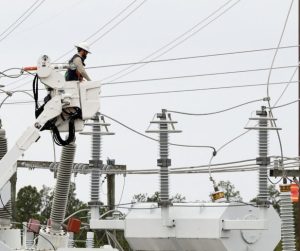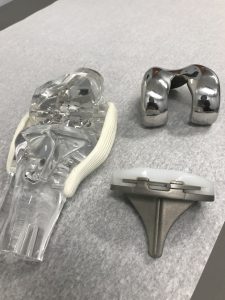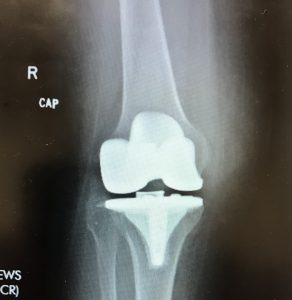KN, p. 316 “International Travel, Law Enforcement, and Wheelchairs”
If there are no paragraph separations in this article, please double-click on the title in order to create a more readable version.
 Sheila and I love great movies and books that include foreign destinations. But, after a recent trip I wondered what challenges an injured protagonist might face when he/she is alone overseas, can’t walk more than ten feet on his own, and must get back home to testify in an important case. I realized that it depends upon when the story is told.
Sheila and I love great movies and books that include foreign destinations. But, after a recent trip I wondered what challenges an injured protagonist might face when he/she is alone overseas, can’t walk more than ten feet on his own, and must get back home to testify in an important case. I realized that it depends upon when the story is told.
Back in the late 70s, a wheelchair bound acquaintance of ours wanted to take a plane to visit family, but couldn’t find an airline willing to accommodate her needs. Not one, unless she chartered a private flight. Waayyyy too pricey for her budget. She had been a frequent flier for business until a debilitating disease sidelined her. She was stunned by the hurdles she now faced.
She began a concerted campaign targeting the airline industry to make it mandatory to have at least one seat accessible to the physically challenged on each and every flight if requested. Eventually, there were federal hearings and public interest, but it took years for the changes to be made.
In 1986, Congress passed the Air Carrier Access Act (ACAA), which guaranteed that people with disabilities would receive fair treatment when traveling by air. All domestic and foreign airlines doing business in the United States were covered by the provisions of the ACAA. The airlines did not advertise the changes, feeling they would be inundated with frivolous requests from able-bodied people taking advantage of the law. It took many more years before the airlines saw that it was good business to be kind to unlucky vacationers and wobbly grandmothers. Amendments to the law were passed (as recently as 2023 in its latest version), helping to fulfill its intent.
In this computerized age, special requests for assistance must be made in advance on the airline websites based on level of need, and are digitally carried along with the passenger information until he/she gets back home again. It seems to be first-come, first-served as to how many special needs passengers are on each flight, and those people must be self-sufficient (or have a traveling companion) once on board.
The flight attendants will help with stowing crutches, but are not caregivers. I watched a senior citizen with a broken ankle enter a plane bound from Europe to the USA. Escorts supported her on both sides to get her to that point, but the aisles were too narrow for them to continue to give assistance. Flight attendants were about to send her back to the airport, when the woman said she would hold onto the seatbacks and hop her way to her seat a few rows away. Someone not as strong/determined would have needed a traveling companion.
Each airport/airline has its own system of delivering wheelchair people to the planes. In its best version, once checked into the system, a transport person is assigned to stay with you in the airport until your flight leaves – including getting you to restaurants and bathrooms. One International airport has a central location for all the wheelchair travelers from all the airlines.
An App tracks everyone by name and flight, then makes sure the travelers are delivered to the right place at the right time. At the other end, an escort takes the passenger through customs and baggage claim, then delivers him/her to the ground transportation point.
After you check in at the airport, and have your boarding pass in hand, one USA domestic airport transport gets you through security (and to the gate) then leaves you at the gate on your own, no matter how long the layover.
My own experience: I traveled to Portugal during the holidays and temporarily hampered by a wonky knee that couldn’t support all the walking, I needed a wheelchair to get through the four airports (each way). I took a taxi, a wheelchair, a plane, a moving lift cart, a van, more wheelchairs, two more planes, another wheelchair, and another taxi to reach my destination. I repeated all that on the return.
My new knee has titanium in it and set off the security alarms repeatedly. Pat-downs were required at every security screening and I was told a doctor’s note would not have prevented the process. I boarded one of the planes early because of the wheelchair protocols and settled into my aisle seat. But, just when I thought it was safe to close my eyes, a late-arriving harried traveler tripped and dumped his shopping bags on my head, then elbowed my head as he tried to regain his balance, knocking my glasses askew. I was none-for-wear, and couldn’t have jumped out of the way in any case, but to his credit, reported his blunder to a flight attendant. Twice.
Help was spotty, depending on the airport. At an International airport, I was taken on a tour of the terminal, could have gone shopping if I chose, was delivered to the wheelchair bathroom, and was asked about snacks and meals. In a different airport, the transport people left me at the gate, then forgot to come at the appointed time to wheel me down the football-field-long jet bridge to the plane. The gate attendant helped out.
When it was time to head home, savvy traveler that I am, I gathered my grit and my crutch and entered the first taxi for the homeward bound trip. Four airports, three flights, wheelchairs, and taxis later, I collapsed into bed after 22 hours of travel. A few days later, the bills beckoned and I’m pretty sure I paid the correct people the correct amount of money. I made it through the jet lag and I didn’t see any bodies laying around. It’s all good.
Moral of the story? Make sure you take this essential travel companion: a sense of humor.
If the protagonist in your book has to fly to another continent, he/she shouldn’t be expected to make any good decisions for at least 24 hours, and certainly not be expected to testify in court right away. Why not? The usual culprits involve brain fog, extreme fatigue, irritability, headaches, sleeplessness, and I can go on.
Of course, when the brain goes dead after the flight, those decisions could be comical. Or wickedly deadly. I could have used my crutch to trip a few people who behaved badly while I sat in my wheelchair, smiling innocently.
*The Kerrians are fictional characters, but all the events in this post actually happened. Promise.
KN, p. 316 “International Travel, Law Enforcement, and Wheelchairs” Read More »




